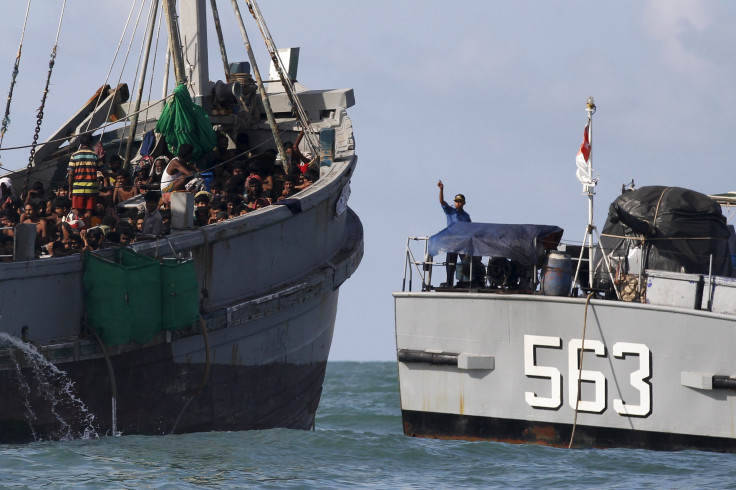Myanmar Bans Rohingya Muslims From Fleeing Amid Southeast Asia Migrant Crisis

Myanmar will bar those who are Rohingya, a Muslim ethnic group, from fleeing the Southeast Asian country and monitor boat traffic in an effort to crack down on human trafficking, U Zaw Htay, a deputy director general of the Myanmar president’s office, told the New York Times this week. But the government maintains that the migrants are not indigenous and thus has no intention to change its discriminatory laws, which have stripped the Rohingya of basic rights and forced them out of their homes.
Myanmar, formerly known as Burma, has seen thousands of Rohingya sail across the Bay of Bengal and Andaman Sea on squalid ships to seek refuge in other nations in recent months. Deep religious and racial tensions in Myanmar have been a driving force in Southeast Asia’s migrant crisis. Violence and oppression has become unbearable for the long-persecuted Rohingya, a minority population that mostly resides in northern Rakhine state.
The Rohingya in Rakhine have clashed with the Buddhist majority population for decades. Extreme Buddhists argue Rohingya Muslims are not from Myanmar and thus should be denied citizenship. Some say the minority group migrated from Bengal, a region which is now Bangladesh and eastern India. Some 810,000 people in Rakhine are currently without citizenship.
The Rohingya have also faced institutionalized discrimination at the hands of the Myanmar government, which recently transitioned from military rule to democracy. Myanmar announced last year that the Rohingya can become official citizens of Myanmar only if they agree to be registered under another ethnicity and if they can prove their family has lived in the Buddhist-majority nation for at least 60 years. The Myanmar government also revoked Rohingya voting rights and enacted a new law that allows authorities to order women to wait three years between child births, which rights groups say targets Muslim women.
About 140,000 documented Rohingya have been forced from their homes and live in displacement camps. But tens of thousands of undocumented Rohingya live in villages in Rakhine state along the border with Bangladesh, where they are barred from coming and going as they please. More than 200,000 Rohingya refugees live in Bangladesh, where they are considered illegal migrants. For the Rohingya, getting on a boat seems like the best option.
The marine voyage is treacherous, and the migrants are subject to disease, hunger, dehydration, abduction, extortion and abuse. Dozens of corpses of suspected Rohingya at sea have washed ashore in Rakhine. Thousands of migrants were stranded at sea for weeks or even months because countries were not willing to take them in. More than 4,000 were rescued and brought to government camps in Malaysia and Indonesia, which agreed last month to provide temporary shelter. But there are still thousands more believed to be adrift in the waters.
© Copyright IBTimes 2024. All rights reserved.





















